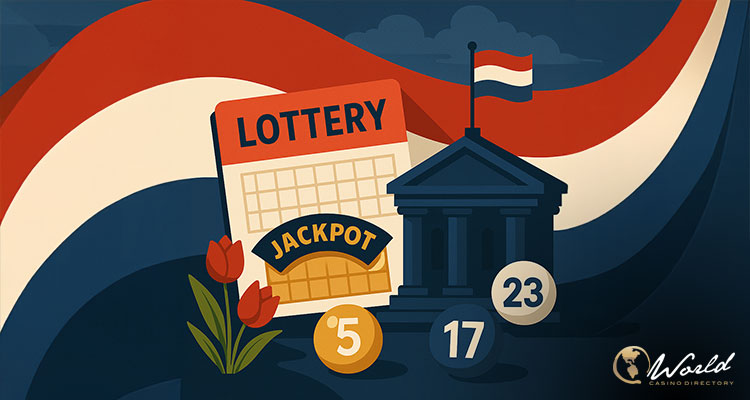The Dutch government has reportedly decided not to proceed with the privatization of the national lottery, Nederlandse Loterij. In a recent announcement to the House of Representatives, State Secretary for Taxation Tjebbe van Oostenbruggen and State Secretary for Legal Protection Teun Struycken stated that privatizing the lottery is currently “not feasible and proportionate.” This move keeps the lottery under state control, in alignment with the government’s broader gambling policy.
Focus shifts toward online gambling regulation:
Van Oostenbruggen emphasized that maintaining ownership allows the state to offer a gambling operator that is “structured differently from commercial gambling providers,” giving the government a mechanism to uphold long-term market stability and ensure greater protection from gambling-related harm.
The decision is rooted in the Dutch government’s overarching vision on gambling, which emphasizes public safety, the prevention of gambling addiction, and efforts to deter illegal gambling activity. The current approach is to leave the lottery and land-based sectors untouched while attention is directed toward tightening oversight of the online market.
As part of this reform strategy, the government is working toward stricter laws to bolster consumer safeguards in the online space. Struycken had already outlined a more restrictive regulatory approach to Parliament in February, proposing new advertising controls and a higher minimum gambling age—specifically raising it to 21 for riskier formats such as online slots. A revised gambling act reflecting these measures is expected by year-end.
“The government also wants to take responsibility in a market that clearly also has negative aspects,” Van Oostenbruggen wrote in his parliamentary letter, stressing the importance of preserving citizen protections in a fast-evolving gambling environment, according to Rijksoverheid, the national government of the Netherlands.
While Nederlandse Loterij will continue operating under state ownership for now, CEO Arjan Blok responded with a mixed reaction. Acknowledging the government’s reasoning, Blok nonetheless reiterated the lottery’s interest in eventually gaining independence. He believes this would better equip the operator to compete with international rivals.
“Nederlandse Loterij wants to be the most responsible gambling provider,” Blok said. “We can be and remain that if we can structurally compete with international competitors on the Dutch market.” He added that it is “positive that the government will re-evaluate the shareholding in Nederlandse Loterij in the long term.”
He welcomed the government’s recognition of the lottery’s social function and its emphasis on fun and responsible participation: “Because participating is fun, but it should also remain fun.”
Holland Casino also to remain public as tax burden increases:
In addition to freezing privatization of the lottery, the government confirmed that Holland Casino will also stay under public ownership. The operator has faced mounting financial pressure following recent increases in gambling tax rates. A 7.3% tax hike that took effect in January has already affected the company’s operations, with another scheduled for January 2026.
Petra de Ruiter, CEO of Holland Casino, warned in August that continued tax rises would make it impossible for the business to remain profitable, calling the current trajectory “irresponsible.”
To address these challenges, the government is in talks with the casino to explore solutions aimed at improving financial resilience. Measures already underway include cost-cutting initiatives such as downsizing marketing budgets, restructuring the headquarters, adjusting game offerings and opening hours, and closing the Zandvoort location.
To further assist with liquidity, Holland Casino has secured a tax payment pause and a longer repayment period for debts accumulated during the COVID-19 pandemic. Van Oostenbruggen indicated that additional steps will likely be required to safeguard the casino’s long-term viability.



